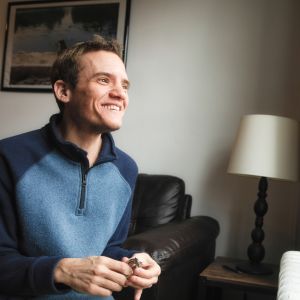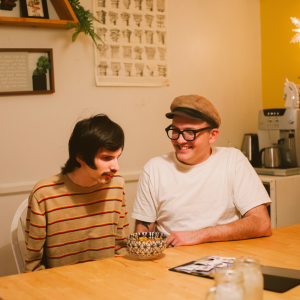Shared Living
Sharing life’s best moments
Our Shared Living service provides Supported Independent Living (SIL) options. Each Supported Independent Living home has a 24/7 experienced support team who understand Autism and are dedicated to working with you and your family to reach your goals and provide the support you need. We pay close attention to the detail to ensure the home is unique to the you and that you are supported in the way you choose.
We assist you to maintain and improve independent living skills and quality of life. You will be supported to be included in the local community, and provided opportunities to have real relationships, contribute to everyday life and take part in daily living activities around your home.
Careful preparation goes into planning for the transition into your new home and matching you with compatible housemates. In addition, we provide tailored support and activities to suit your needs and goals, working with you and your family to be involved in the decisions that impact your daily life.
Key features of this support include:
- 24/7 support by experienced staff who understand the needs of people with Autism.
- A unique 2.5 day roster which minimises change (3 shifts a week) and provides you with the opportunity to develop positive relationships with the people supporting you.
- Assisting you and your family to obtain the level of supports required.
- The development of an Individual Plan to support you to achieve the life you want.
- Working in partnership with the important people in your life. This could include being involved when selecting support staff, sharing family traditions, or providing input at team meetings.
- Careful planning when transitioning into your new home to ensure it meets your needs.
- Access to therapy services.
Accessing this service
To access Shared Living supports, NDIS funding in core supports for Supported Independent Living (SIL) that meets the requirements of the individual’s support needs is required. Submit a service enquiry to contact our team and discuss the options available to you or view our current available homes below.

Your Next Home Awaits
Discover Our Supported Independent Living Vacancies
Supported Living provides 24/7 support from experienced staff who understand Autism. We are dedicated to working with you and your family to achieve the life you want. Check out our current vacancies below and find your next home!
Move-in ready in early 2025, this modern unit is equipped for overnight high-needs support and close to Reg Williams Reserve’s array of amenities. Two supported residents live in neighbouring units, with socialising an option if desired.
The unit would suit someone in their 20s to mid-30s with SIL and SDA Robust funding in their NDIS Plan, who is looking for a lovely new home.
With spacious living and outdoor areas plus scenic views of the Perth Hills, this Gosnells gem is ready for another resident to call it home.
This house is the perfect place for a man in his mid-20s to mid-30s who enjoys watching movies, listening to music, dancing at discos, cooking, exploring nature, and bowling.
This home’s quiet tree-lined location, tranquil back garden, and proximity to local shops – plus Salter Point – make it both a welcoming and exciting place to be.
This vacancy is suitable for two individuals who would like to make a convenient and supported space their own.
This home is located in a peaceful precinct near Fern Cove Park, Wilson Park, and the Canning River. It offers plenty of space for residents to relax and do what they love, both indoors and outdoors.
The person interested in this comfortable home will be moving in with a housemate who has similar interests and hobbies.
Enquire about our listings

Independent Living
Independence with a helping hand
Independent Living provides support to live on your own, close to your family and friends. There are a number of ways to access a property, depending on your preferences and finances. The Autism Association can provide regular support in each of the following arrangements:
- Your own property
- A private rental
- Department of Housing property
- A granny flat on private property
- A property owned by a family member
- A property funded through the NDIS Specialist Disability Accommodation
Depending on the types of support you choose, we can assist with:
- Individual planning
- Personal care
- Grocery shopping
- Doing things that interest you, e.g., exploring hobbies, joining social groups, or volunteering
- Attending appointments
- Learning new skills
Accessing this service
To access Independent Living supports, NDIS funding in core supports for 15 hours or more per week is required. Submit a service enquiry to contact our team and discuss the options available.


To enquire about any of our Community Living services, complete the form below or call +61 (08) 9489 8900.




